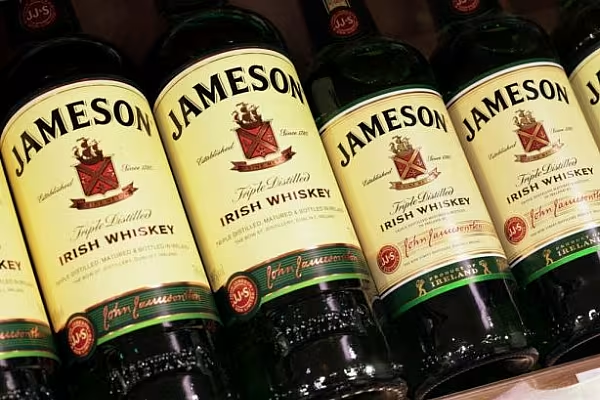Don't get too excited about a Chinese luxury recovery. That's the message from Pernod Ricard, seller of high-end spirits.
And despite an improvement in the U.S. market, the company's investors should keep a celebratory bottle of Perrier-Jouët champagne on ice for a while.
The maker of Chivas Regal whisky and Absolut vodka said on Thursday that sales fell 9 percent in China in the year to June 30.
It's a contrast to some tentative signs of recovery in the region in the last few days. Prada said on Friday that it was seeing signs of improvement in Hong Kong and Macau as well as mainland China. And on Thursday, Macau gaming revenue rose 1.1 percent in August, the first increase in more than two years.
The problem for Pernod Ricard is scotch. It's no longer the flavor of the month in China, where across the market sales are down by a double digit percentage. The country's crackdown on extravagance is to blame, as are changing tastes among young drinkers -- they now favor cognac for a night out in bars and clubs, with the added benefit that spending there can escape some of the austerity squeeze.
Scotch accounts for almost 20 percent of Pernod's sales in China, according to Trevor Stirling, analyst at Sanford C. Bernstein. While rivals LVMH and Remy Cointreau have some exposure to this category, the vast majority of their spirit sales in China are of cognac, which is proving more resilient.
The situation is worrying for Pernod Ricard, as the country accounts for about 9 percent of its sales.
Yet the shares were up more than 2 percent on Thursday.
The company's report today did contain good news. Its long-awaited American recovery may be on the verge of materializing, as it says it now underperforms the rest of the market by less than 1 percentage point. Getting the U.S. right matters as it accounts for about 17 percent of Pernod's sales.
It's also welcome that it forecasts that earnings will expand by between 2 percent and 4 percent in the current financial year and that free cash flow rose above 1 billion euros ($1.1 billion). The company plans to invest half of an expected 200 million euros of cost savings into promoting its brands.
Nevertheless, Pernod Ricard's positioning in China and the U.S. justify the discount in its forward price to earnings ratio to the broader market. Hopes earlier this year that the trend in China would be more positive haven't materialized.
The company expects conditions in China to improve in the current financial year, but for the market to remain tough. So to narrow the valuation gap, Pernod's scotch sales need to show clear improvement in China. It's reorganizing its business there, including creating a special sales force for its most upmarket brands, which are being hit hardest. But it's hard to know if that will be enough to surmount the substantial obstacles the company faces in the country.
It will also have to show a full recovery in the U.S. Sales in this market are accelerating -- rising 4 percent in the year to June 30 whereas they were flat in the year earlier. But there is still some way to go to catch up with the market as a whole, where it still faces an uphill battle now that millennials are turning away from vodka, one of its flagship products.
Investors should wait for stronger signs of improvement before they raise a glass.
This column does not necessarily reflect the opinion of Bloomberg LP and its owners.
News by Bloomberg, edited by ESM. To subscribe to ESM: The European Supermarket Magazine, click here.














